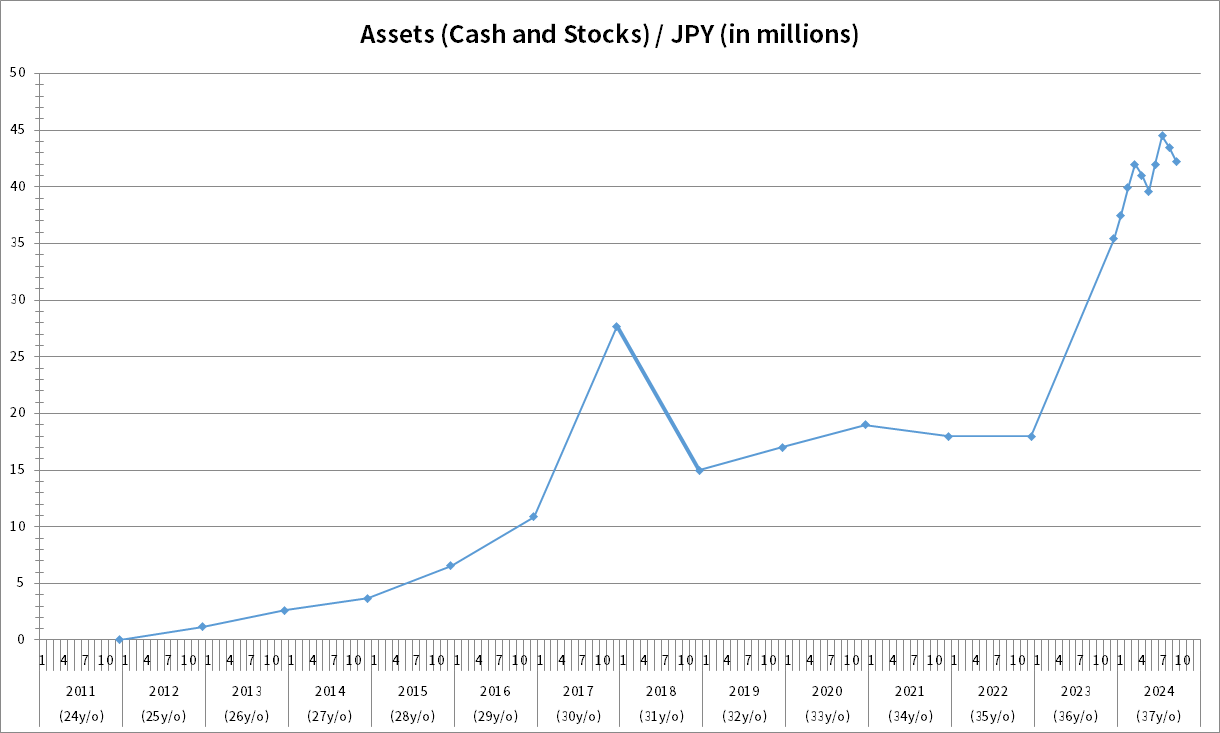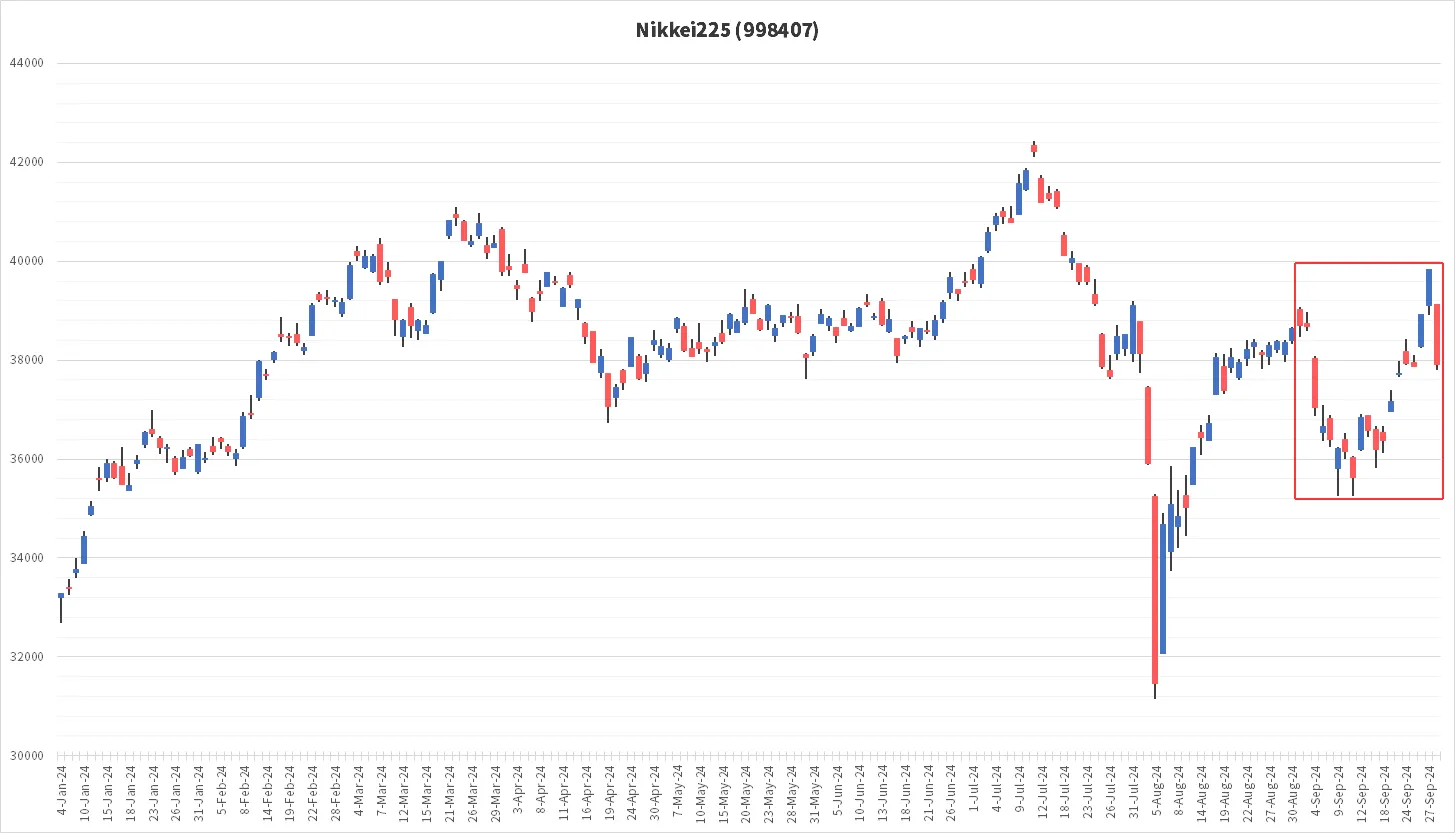![September 2024 Result [Asset Trends Disclosure]](https://financial-textbook.com/wp-content/uploads/2024/10/eyecatch_121.webp)
Summary of investment and asset management performance for September 2024.
This article calculates the exchange rate at "$0.00690/yen" (145 yen/$).
The sales and other figures used in this article are current as of the time of writing. Depending on your viewing period, the figures may have changed significantly.
Table of Contents(目次)
September 2024 Result
The chart below shows the change in my assets. The rightmost point shows my assets at the end of September 2024, which were 42.2 million yen (about $0.291 million).
The month-over-month change in assets was -2.99%.

Nikkei 225 is almost unchanged from the previous month.
The Nikkei 225 fell sharply in mid-September, but stock prices have recovered.
In September, the big story in the Japanese economy was the change of prime minister. Shigeru Ishiba was elected president of the Liberal Democratic Party, Japan's ruling party, and prime minister.
Mr. Ishiba's campaign promises were a parade of negative factors for the Japanese economy.
- Strengthening of financial income tax
- Suggestion of interest rate hikes by the Bank of Japan
- Suggestion of other tax increases, such as corporate tax
The Japanese economy is on the road to recovery. The economy will cool down if taxes are increased or interest rates are raised. That's why the Nikkei 225 plummeted after Mr. Ishiba was elected. The last trading day of September ended with a plunge in stock prices.
However, unlike the president, the prime minister cannot make policy decisions independently, so his words and actions are becoming more considerate of other conservative lawmakers. Some believe that the Ishiba color is fading and that former Prime Minister Kishida's policies will continue. Therefore, the Nikkei 225 has been rising since October.

Finally
I held on to my stocks in September without buying or selling them. Few corporate earnings announcements occur in September, so the month passes by.
I think there will be almost no change in October either, but the number of earnings announcements will increase from around the end of October. This is because many Japanese companies close their accounts in March, and the end of September is the end of the second quarter. Mid-November makes earnings announcements. Companies that make early announcements start making them from around the end of October.
Stock prices may also rise in anticipation of good second-quarter results for each company. In addition, a national election is scheduled for Sunday, October 27th. Depending on the results, the movement of the Nikkei 225 will also change. I will also report on the results next month.
The information on this website is not intended as a solicitation to invest or as investment advice. It is not intended to suggest or guarantee future trends in stock value, nor is it a recommendation to buy or sell. Investment decisions should be made at the user's discretion. While every effort has been made to ensure the accuracy of the information contained in this website, the website administrator assumes no responsibility for any errors in the information, problems caused by downloading data, or any other losses incurred as a result of trading in stocks or other securities.
![August 2024 Result [Asset Trends Disclosure]](https://financial-textbook.com/wp-content/uploads/2024/08/eyecatch_120-150x150.webp)
![July 2024 Result [Asset Trends Disclosure]](https://financial-textbook.com/wp-content/uploads/2024/08/eyecatch_096-150x150.webp)